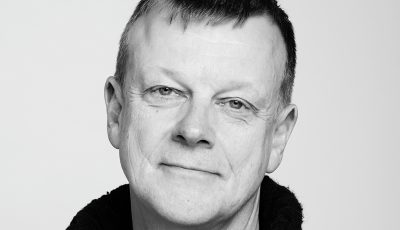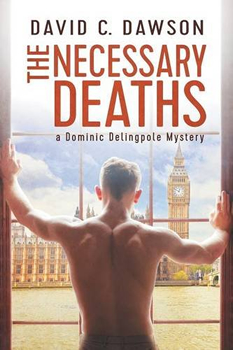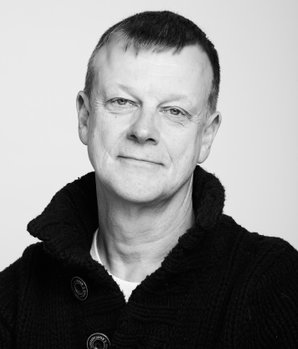

Debut Spotlight: David C. Dawson
THE NECESSARY DEATHS is one of those books where you have absolutely no idea how the strands are linked, and yet you have confidence right from the start that they will be. Along the way, you’ll be thrilled and entertained and you’ll most definitely laugh. There’s some excellent dry humor in this book, and the main characters spark nicely against one another throughout. More, please, Mr. Dawson. More! Anyway, I asked him a few questions:
So, Dominic Delingpole: cool name, cool character, where did he come from?
I’ve been asked this many times, and the truth is I can’t quite remember! I love the rhythm of multi-syllable words, and I love alliteration. There’s an excellent British journalist called James Delingpole, so I think I must have subconsciously picked on his name. Now the name Delingpole has three syllables in it. For symmetry, I wanted the first name to have three syllables as well.
The book was originally called The Reluctant Detective. I’ve always liked thrillers and detective stories where ordinary people investigate extraordinary events. It helps readers identify with the protagonist more easily. The problem is, the police are pretty sophisticated these days, and you can get into a lot of trouble in real life if you try to play Miss Marple. That’s what I wanted to reflect in the character of Dominic. He loves to watch Miss Marple, but he’s a fine upstanding English lawyer, so he doesn’t want to break the law, or supplant the role of the police. It’s a constant dilemma for him.
And he’s the polar opposite of his partner, Jonathan, who I loved! Was it fun to write these two seemingly opposing personalities?
It’s great to hear you loved Jonathan! The feedback I’ve had so far shows that views are highly polarized about him. Some people love him, others hate him and think he’s unfair to Dominic. Women especially don’t like his enthusiasm for “open monogamy.” I’m really excited to have created a character that has so significantly divided opinions among my readers.
It was great fun and quite straightforward to write the character of Jonathan; he’s based on several people I’ve met. Dominic was more difficult. He’s a complex, conflicted man, and I found I was rewriting his back-story several times, to give him the right motivation for his behavior. When you get to book two, you’ll find out that something very significant in his past made him the man he is.
Oh excellent, I look forward to that. They say all writers put themselves into their characters. Which one is more you? I know you sing in a choir…
Are you saying that I’m Jonathan?! The reality is that I think Jonathan is the gregarious person I sometimes aspire to be. The nearest I get to being Jonathan is when I stand on the stage of the Festival Hall with 200 members of the London Gay Men’s Chorus. But I could never do that alone. For me, it’s safety in numbers. I’m actually very content with my own company, and there are some facets of Dominic’s personality that have probably come from me. I’m a big fan of Art Deco for instance, and I do have an almost OCD approach to my daily life. Everything has to be in its place; it’s the only way I can deal with the unexpected. Bizarrely, Steve the geeky skinhead character has many facets of me in him. Now I’m not a skinhead, but I’ve always been very geeky, and like Steve, I find it hard to fit in, so often I choose to go it alone.
Steve the geeky skinhead is another favorite of mine. You really do have an excellent range of personality types in there. Also, you use some iconic British locations—Oxford and Brighton—as your setting. What’s the particular appeal of these places?
I know them! And I got to know them better, once I’d started writing some of the real detail. Brighton is a great city (it’s actually called Brighton & Hove), and I’ve wanted to live there for some years, to be close to the sea. As for Oxford, I live 20 minutes from this wonderful city. I used to live in the next county called Buckinghamshire, close to the prime minister’s country residence, called Chequers (where the climax of the book is set). When I used to go cycling with my son, I discovered a public footpath that goes right across the front of the house. There are security cameras everywhere, of course. My son and I used to cycle there just for the hell of it. I’m sure there are photographs of us on some secret file somewhere.
Ha! Love that. Talking of secret files (bear with me), that cover is pretty sexy. It made me think of Daniel Craig’s Bond. Did you have much of a say in the design?
Thank you! It’s great isn’t it? L.C. Chase, who designed it, is a fabulous creative. DSP Publications is a very collaborative publishing house. They asked me what ideas I had, and I told them that Dominic is a sexy looking guy, and I wanted to link him with London. The first draft of the cover L.C. came up with looked great. It showed Dominic looking out of a window, down onto the Houses of Parliament far below him. Now L.C. lives in the States, so she didn’t know that such a view was technically impossible! But she was brilliant and redesigned it, so now Dominic looks straight across the River Thames from St. Thomas’ hospital, which ties in neatly with the plot line.
Perfect. OK, let’s move on to your writing. Can you tell me a bit about your journey so far? You started with short stories and moved to novels, was that a difficult transition? I ask, because I followed the same path.
I can’t lie, it was a very difficult transition, and one which I’m going to be learning for the rest of my life. I’ve always written short stories to amuse myself, but it was only after I came out (I came out very late in life) that I joined a writers group in my local town. Writing is a great therapy for me. The writers group is called Writers’ Block and they’re brilliantly supportive, as well as being tough critics! It was my son who pushed me hardest. He wanted to know when I was going to write “a proper book.”
Now, I’m a mathematics graduate, so I’m very analytical. I sat down and deconstructed four different books from my favorite crime writers. I wanted the basics: how many words in a chapter, how many chapters in a book, when do you introduce the red herrings, when do you switch focus, and so on. Then I just sat down and started writing. I spent a week on a fabulous workshop run by the writers’ education group Arvon, here in the UK. The two tutors were lovely and ripped the draft apart. So with their feedback, I rewrote it several times. Finally, my son nagged me to send it to a publisher, and the lovely DSP Publications picked it up.
Your son rocks, clearly. So what about influences? Do you read a lot of crime and thrillers?
Heaps and heaps of them. Right from when I was a boy. One of the first ones I remember was called Bunst and the Secret Six, by John Newton Chance. It was a fantastic boy’s own adventure, with secret agents and a young protagonist who beat the police to solve the mystery. I found a copy of it on the Internet recently, and discovered it was written in 1951, yet its racy style would still be popular today. Growing up, I was a big fan of Agatha Christie of course, and also Graham Greene, who remains a big hero of mine. I’ve learned a lot about characters’ motivations through reading and re-reading him.
My favorite author remains William Boyd, who seems to be able to write in so many different styles. Restless is just one of his brilliant novels. But the detective stories I grew up with had few, if any, gay characters in them. I wanted my books to be the opposite. And I didn’t want the gay characters to be oddities. In many “gay” novels, the characters are often full of angst. They are victims. I hope my characters are positive people, the kind you’d like to meet.
Yes they are. I feel like I’ve met them already. In various Soho bars. *cough* What’s next for Dominic? I feel like he’s only getting started.
You’re right! I’ve plotted the story arc for five books in the Dominic Delingpole series. That was a lot of fun. I was half way through writing the second book, when I sat in the garden with a gin and tonic and sketched out the series on a notepad. Apart from the rough plots, I wrote significant back-stories for the principle characters. Those will undoubtedly change, but it meant I could finish the second book very quickly, as the motivations for all the characters became clear in my head.
In the second book, Dominic and Jonathan travel to Sitges, Spain, and San Francisco in the U.S. Steve Brown features heavily, and he gets to discover something very sinister from his past. I also introduce a married Spanish couple called Alfonso and Gabriel. It’s been a complicated novel to write, because it’s set in three different time zones. I had to have a spreadsheet to make sure the chronology of events worked. That’s my OCD coming through again.
Can’t beat a spreadsheet though, to be fair. Back to you now—you’ve done some interesting things in your time, including making films about the fall of communism, and Ethiopia. What’s the most memorable moment of your life, would you say?
Being a father, without a doubt. I’m so proud of my son, he’s done so many things in his life already, and he’s still only 23. He’s been an actor, a singer, a police officer (he pointed out the errors in The Necessary Deaths), and he now runs his own video production company.
Of all the historical events I’ve had the privilege to film, the most memorable has to be the changes in Eastern Europe after the collapse of communism. I remember being in East Berlin in June 1990, less than six months after the fall of the Wall. It was 5:30 in the evening, and we found it nearly impossible to find a taxi driver willing to take us back into West Berlin. They were all worried that the Wall might go back up again, separating them from their families. It showed me how easily the established world order could be turned upside down. That was very significant for us all in 2016, when we watched events unfold in the UK and the US.
Incredible stuff. It must make the daily grind seem a little dull now. What am I saying? Nothing is dull! You’re a published author! How does that feel? Have you cried over a bad review yet? It’s basically a rite of passage.
It feels great to be a published author; I have an ISBN number. It’s a small item for posterity. Fortunately, I learned to deal with the anguish of a bad review when I was making TV programs. I shall never forget my first ever review in London’s Time Out magazine. It started, “I took to this like a fish to batter.” It stung me. Fortunately, I got better at making programs, and I won a couple of awards and some decent ratings. But, as you can tell, I’ve never forgotten that first review.
Reviews can be useful because they draw attention to your work, and I hugely respect criticism from other writers. They have experience and insight, and they provide constructive criticism that I can use to help improve my writing. I’ve learned to take criticism on the chin. Everyone’s entitled to an opinion, provided they’re articulate and polite in their comments!
*****
David C. Dawson is an author, award-winning journalist and documentary maker, living near Oxford in the UK. He has traveled extensively, filming in nearly every continent of the world. He has lived in London, Geneva and San Francisco, but now prefers the tranquility of the Oxfordshire countryside. David has one son, who is also a successful filmmaker. In his spare time, David tours Europe on his ageing Triumph motorbike, and sings with the London Gay Men’s Chorus.
***
S.J.I. (Susi) Holliday grew up in Haddington, East Lothian. She spent many years working in her family’s newsagent and pub before escaping to St Andrews, Dundee and Edinburgh to study microbiology and statistics. She has worked as a statistician in the pharmaceutical industry for over sixteen years, but it was on a six-month round-the-world-trip that she took with her husband in 2006 that she rediscovered her passion for writing. After abandoning her first attempt at a paranormal thriller, she wrote hundreds of crime and horror short stories before finally sitting down to write the book she was always meant to write. Based on a true-life creepy event, Black Wood is the first of a loosely-linked series set in the fictional town of Banktoun. She lives in London, except with the magnetic pull of Scotland attracts her back, and she can usually be found in cafes, pubs, hanging around at book festivals and on Facebook and Twitter (@SJIHolliday).
- The Big Thrill Recommends: ORIGIN STORY by A.M. Adair - November 21, 2024
- Deadly Revenge by Patricia Bradley - November 21, 2024
- Unforgotten by Shelley Shepard Gray - November 21, 2024



